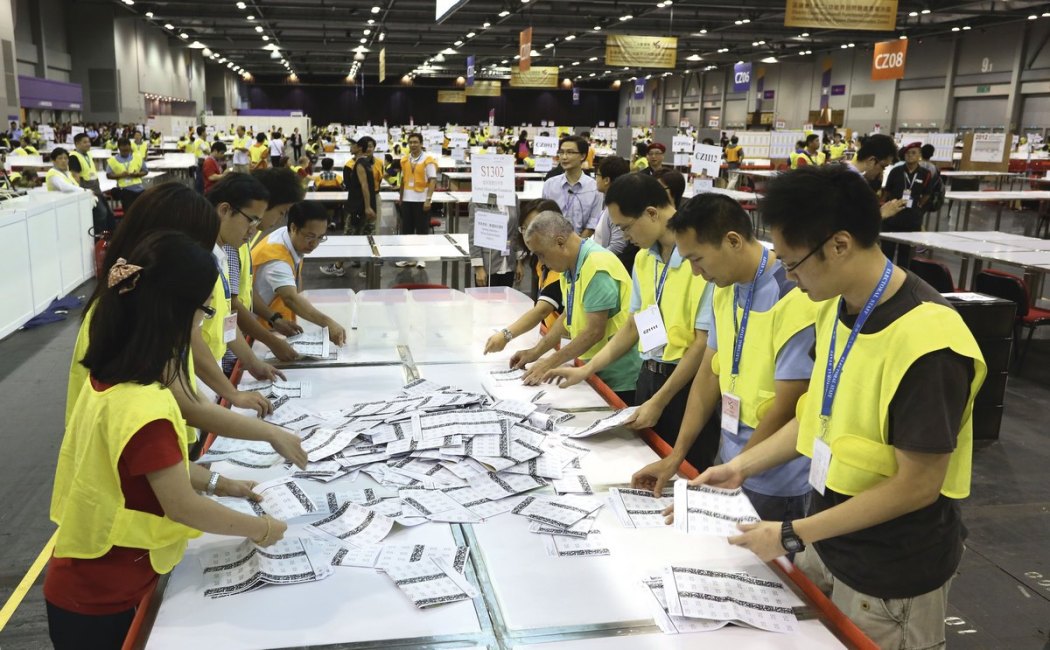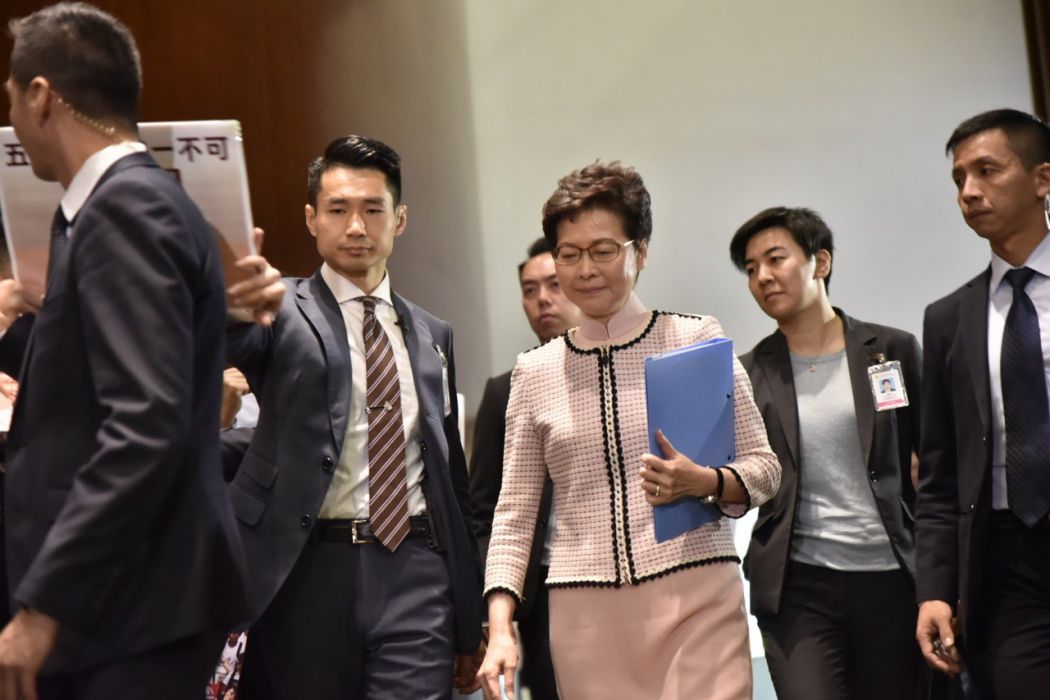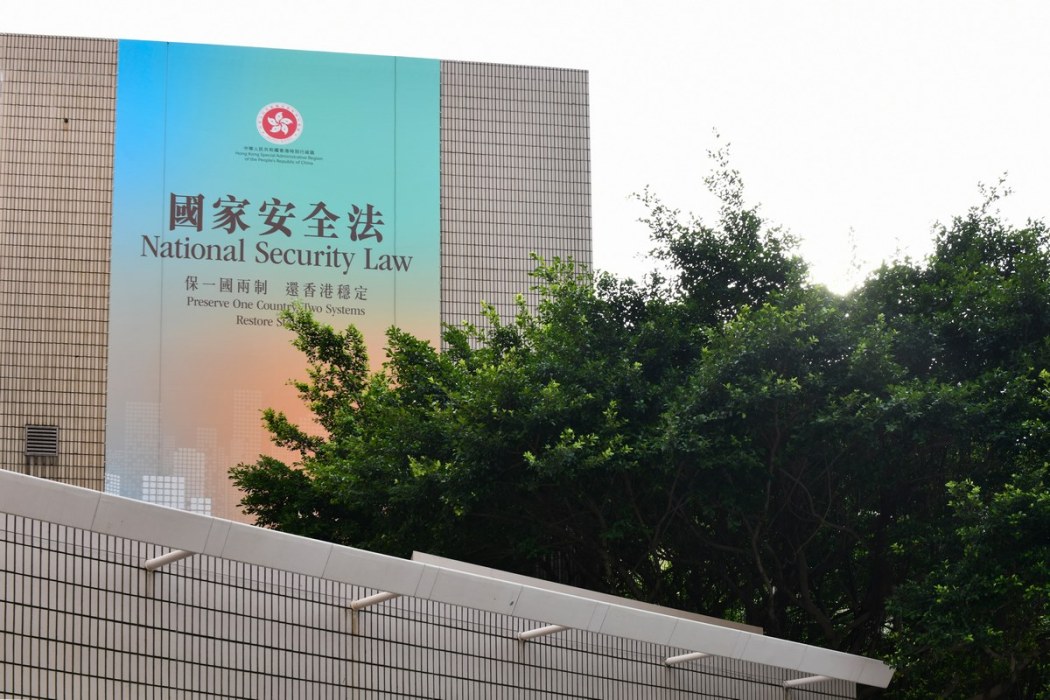Why are Beijing’s most avid supporters in Hong Kong so terrified over the prospect of people casting blank votes? This is despite the fact that they have solemnly assured us that the sweeping changes to the election system have majority support and that people have been clamouring for a national security law to put an end to instability.
‘Hong Kong has been put on the right track’, they triumphantly proclaim. Adding that now this has been achieved the SAR can look forward to a far brighter future.

If they really believed their own words why on earth would they be in the least bit worried if citizens opted for the most of silent protests by refusing to endorse any of the candidates on the ballot paper, all of whom need to be carefully vetted and can only be there following nomination by an election committee which Beijing controls.
Erick Tsang, the loyalists’ loyalist who serves as Secretary for Constitutional and Mainland Affairs, has gone so far as to suggest that calling for blank votes amounts to ‘manipulating elections’. Teresa Cheng, the Secretary for Justice (irony alert) says that thought needs to be given to outlawing blank votes.

The suspicion therefore lingers that despite all the hand clapping and assertions of public support, the Quislings are well aware that the majority support they claim to have is illusory. They know that there is enormous public disquiet in face of the blunderbuss of ‘reforms’ crushing the remnants of liberty underfoot.
The Quislings are happy to have supressed outright manifestations of defiance such as street protests but that is not enough, they are now trying to eliminate non-overt acts of defiance because they want the flame of liberty to be extinguished in its entirety. This is an extremely challenging objective and requires an even greater ramping up of the white terror.
What next? Will the purchase of Taiwan pineapples not be allowed on grounds of national security? Will the colour yellow be banned on grounds of subversive intent? Will citizens be forced to follow the slightly ludicrous example of Regina Ip, the perpetual striver for high office, who, in the name of patriotism, says she will no longer be wearing clothing from her Burberry collection?

The paranoia of authoritarian governments follows a well beaten track. On the one hand it needs to be reinforced by endless enforcement of loyalty pledges, a fetishist concern over symbolism, the national flag and the national anthem are familiars in this regard.
On the other hand authoritarians are rarely satisfied with silence, they need to reinforce the myth of their popularity with punishment for those who are too silent, too sullen or simply too passive.
There was a famous saying among members of the intelligentsia in the old Soviet Union who were well versed in the need for silence in the face of a regime that handed out severe punishment for those who dared to speak their minds. It went as follows:
‘Don’t think.
If you think, then don’t speak.
If you think and speak, then don’t write.
If you think, speak and write, then don’t sign.
If you think, speak, write and sign, then don’t be surprised’.
Hongkongers were frequently assured that the infamous offence of thought crime was never part of the National Security Law which only concerned itself with concrete actions that threatened national security.
We now know that this reassurance, like so many others, is not worth the paper it was not printed upon. Right now prosecutors in the case of the 47 democrats charged with NSL offences are scouring through the written words of the defendants to produce ‘evidence’ of their sedition. There is no longer a pretence of allowing thinking aloud and arguing for a point of view which differs from that of the state.

This leads to the inevitable conclusion that thinking aloud is no longer safe. It adds to the longer list of things that are no longer safe.
What even the most oppressive governments cannot do however is to change what goes on inside people’s minds and hearts. They believe that force-feeding the young with so called patriotic education will achieve this end and they have convinced themselves that as long as they can stamp out freedom of expression, a change in hearts and minds will follow.
The reality is that what is largely achieved is sullen silence, fear of initiative and dull observance of the rules – the human spirit is not so easily quashed and will reassert itself as night follows day.
Support HKFP | Policies & Ethics | Error/typo? | Contact Us | Newsletter | Transparency & Annual Report | Apps
Help safeguard press freedom & keep HKFP free for all readers by supporting our team
| HKFP is an impartial platform & does not necessarily share the views of opinion writers or advertisers. HKFP presents a diversity of views & regularly invites figures across the political spectrum to write for us. Press freedom is guaranteed under the Basic Law, security law, Bill of Rights and Chinese constitution. Opinion pieces aim to point out errors or defects in the government, law or policies, or aim to suggest ideas or alterations via legal means without an intention of hatred, discontent or hostility against the authorities or other communities. |

More HKFP OPINION:
HKFP has an impartial stance, transparent funding, and balanced coverage guided by an Ethics Code and Corrections Policy.
Support press freedom & help us surpass 1,000 monthly Patrons: 100% independent, governed by an ethics code & not-for-profit.










